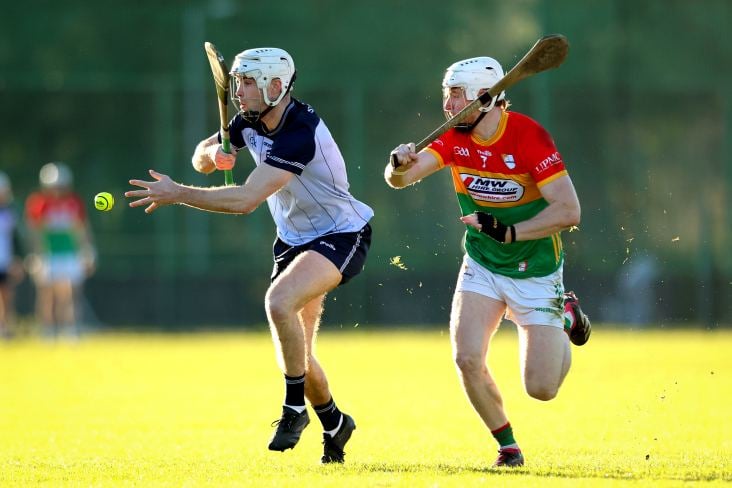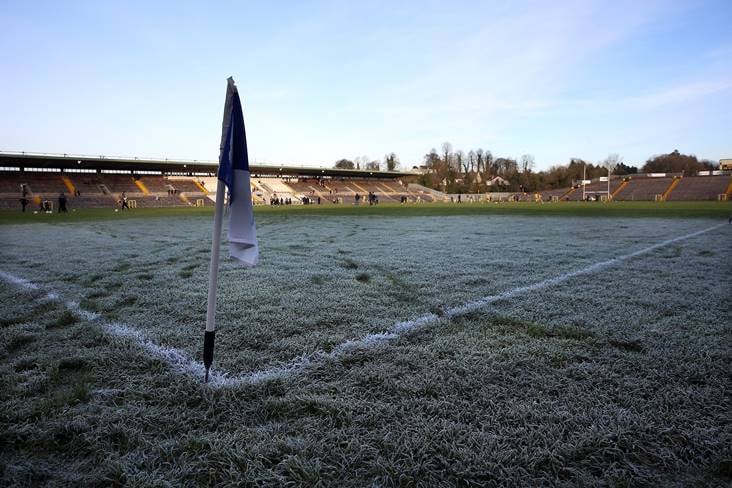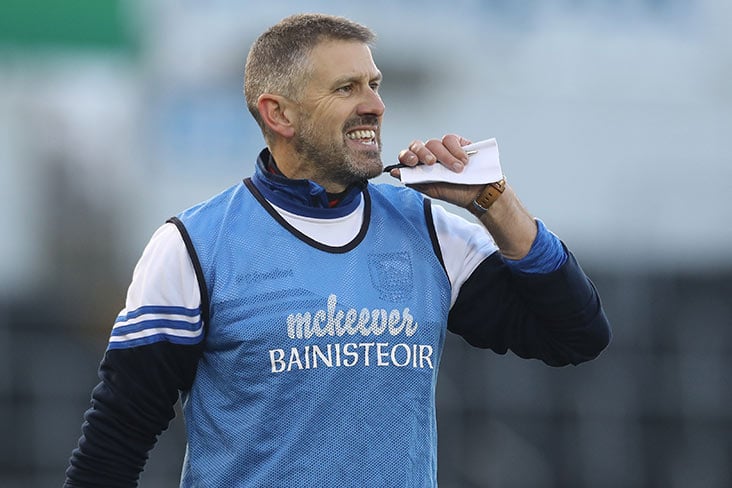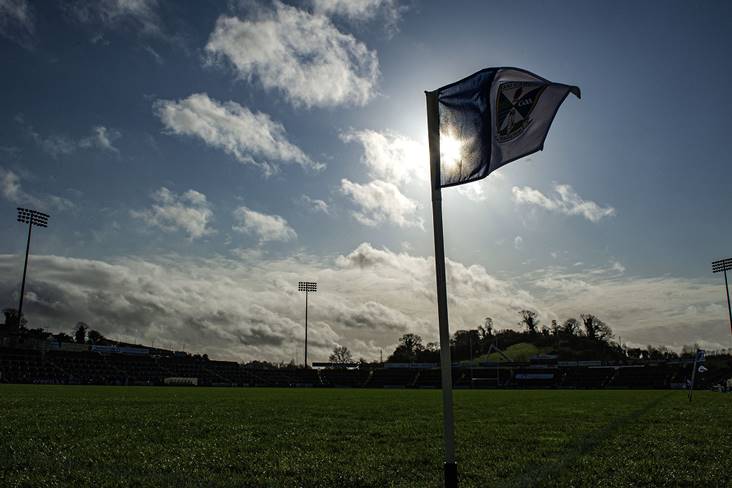Coyne, Peter
September 15, 2011For until he was taken ill in early July he was in very good health and enjoying life to the full, and hopes were high that the most senior citizen in the parish would be spared for four more years and have the honour of becoming a centanarian. It wasn't meant to be. On the night of Tuesday, August 2nd at University Hospital Galway, surrounded by his loving family, "Cousie" Coyne went to his eternal reward.
Head of one of Milltown's best-known families, two memorable parties were hosted for the man himself in the past six years. In 2005 the Coynes celebrated the 90th birthday of their father with a Mass in Milltown Church and a social get-together across the road in Mullarkey's pub. In late June of last year they marked the 95th birthday of the man affectionately known to his many, many friends as "Cousie" with a special Mass in the house, courtesy of Fr JJ Cribben, followed by a family party and the customary two pints of Guinness for Peter in Mullarkey's.
It was very gratifying to see a man living such a long life while in great health and so obviously enjoying being out and about, meeting people and always bright, cheerful and positive about life. Indeed, he was not only popular and highly respected, he was equally well liked for his impish personality and sparkling sense of honour, which was infectious. As far as Cousie Coyne was concerned, the glass of life was always half-full, never half-empty.
He was born on June 29th 1915, son of Peter and Bridget Coyne who lived in the townland of Musicfield, half-way between Milltown and Ballindine and where the man named after his father would live all his life except for some years spent in England in the late 1930s. He was the youngest of 13 children.
He grew up in a dramatically changing Ireland. The legendary Fenian leader O'Donovan Rossa died on the day Peter Coyne was born. It was a time when Irish nationalists were launching an armed rebellion against British rule, culminating in the 1916 Rising ten months later. At the same time more than 200,000 Irishmen, Catholics and Protestants, most of them young, fought side by side for Britain and its allies in World War 1 (the Great War). 1915 was also the year the RMS Lusitania was torpedoed by German submarines about eight miles off the coast of Kinsale, Co. Cork while en route from New York to Liverpool - with the loss of 1,195 lives. It happened on May 7th, the month before Pete Coyne was born.
In the West of Ireland in rural places like North Galway and South Mayo, people lived off the land, making a living, as best they could, from smallholder farming. Times were hard but the people had an indomitable spirit. Men worked hard; women even harder for longer hours in the kitchen and in the fields, but they did nt get the same credit for how they held their families together.
Like all teenage boys at the time, the young Pete Coyne was only 15 or 16 when he went out to seek work, wherever he could get it in the early 1930s. In a family album of pictures, anecdotes and biographcal details, produced to mark his 90th birthday, we learned that he started work on a local farm helping to make ditches; then as a road-maker for Galway Co. Council, work that included a stretch of new road from Tuam town to Airglooney after Eamon De Valera turned the sod for the Sugar Factory on November 24th 1933; and in the years that followed the young Milltown man worked with a local house builder, Mike Corrigan, for 1 and 7 shillings a week. A year or two later he set off from Claremorris Railway Station to take the boat to England, turning up in Manchester, a place that would remain close to his heart as some of his own sons and daughters would live there several decades later. In England in the 1930s and '40s, one custom was the placing of a price by big farmers on the estimated worth of Irish workers on the land.
"Cousie' Coyne, young and hardy, and not a shy lad, was priced at 12 English pounds. Not only that, but his new employer put a 'stripe' on his working clothes to indicate that no other farmer could offer him work!
He was then 20 years of age and not afraid of the big world he was discovering. Times were so different then that, in summer and into the autumn, the Irish workers on the farms of England and Scotland often slept outdoors. Nearly 70 years later, Cousie laughed about it - recalling how they used to call it "sleeping with Mrs Greenfield!"
But he missed home, and it was only a matter of time before he returned. Luckily, turning into the 1940s, Claremorris Bacon Factory (founded in 1930) was a great employer. Pete Coyne was working there when he married Birdie Burke of the Burke family from nearby Coole in 1942. He was handsome and stylish, having brought a herringbone suit and a military style coat home from England on the boat in 1939. In her wedding day photograph, Birdie was a very beautiful young woman and the happy couple were confidently ready for a new life. They would become the parents of seven children.
Pete's place was truly at home, for four brothers and four sisters had emigrated to the United States. Pete was comfortably able to provide for his young family, working in the Claremorris Bacon Factory for 40 years while also keeping the farm going. He loved the 'day job' in the Bacon Factory and the daily banter with his work mates so much that during the 'big snow' of 1947 he walked to Claremorris on the days he couldn't take out the car, a round trip from Musicfield of 16 miles. He was also in those days, it's well remembered in Milltown, Ballindine and Claremorris, one of the few to own a car, a baby Ford, and of course it made going to football matches a way of life.
He always found time for sport. In his young days he played football and handball, and competitive cycling. As I wrote here in the week after his death, his sons Colm and Padraig were brilliant footballers for Milltown in their time, and both played for Galway: Colm (now living in Manchester) at U21 level, and he also played for the County Vocational Schools' team, while Padraig played County Minor, U21, Junior and Senior football; he won a Hogan Cup medal at full back for St Colman's Claremorris in 1977, an All Ireland minor medal with Galway the previous year; he played in National League and All Ireland SFC finals (winning a league medal in 1981) and was goalkeeper on the Milltown team which won the 1981 County Senior Championship. Recently, Colm's son Liam played at full forward, scoring 1-1, in the Lancashire team which lost the All Ireland Junior Football Championship semi final to Kildare at Newbridge.
In his own playing days, Cousie Coyne lined out with three clubs at a time when the structures of competitive football weren't subject to rigid administration; he played for Milltown, neighbouring border club Garrymore and for Dunmore MacHales.
Down through the years, there was never a dull moment. He loved life and lived it enthusiastically; he cherished friendship; he always had a smile, there was always fun around him and lively conversation.
And music and singing - he played the accordion and mouth organ; he liked to sing two particular old favouities, Danny Boy and Lovely Derry. He loved dancing. And when it came to the craic, he led and others followed, to his own exclusive Cousie-patented command "Pull out the choke ...!"
First and foremost he lived for his family. When he travelled to the United States and across Channel, as he did so often from the 1950s on, it was to visit his brothers and his sisters and later his own sons and daughters. They were always happy visits; they strengthened the bond with home. And when Mary Teresa, Colm and Helene and their families came back from England on their regular holidays to Musicfield, in the summer or at Christmas, their father would have them laughing as soon as they were inside the front door.
For the past three decades, he lived in the home place at Musicfield with his son Padraig and his family and with Pauline and her family across the road, so he had great company and was himself the finest of company. He was often happiest with young people around him. Padraig's wife Ann (nee Geraghty, Church View, Tuam) was also a pillar of support and loving friendship.
Inevitably in the unfathomable way of human nature, for a man who lived so much of his long life in genuinely great form, he did know sorrow and grief - his beloved wife died in 1986, long before her time; and their eldest son Joe did in the year 2000, and that too was a heavy blow. At such times of great sadness and loss, Pete Coyne's faith and fortitude sustained him, along with family love and support, and he was also immensely consoled by the exceptional rapport then developing between the next generation and their beloved grandfather.
There was a very large attendance at the funeral Mass at St Joseph's Church, Milltown and at the burial in Kilclooney Cemetery. Peter Coyne's long, well lived life, all that it meant to his family, his friends and all who knew him, came through with a great depth of feeling in beautifully expressed sentiments, delivered in homage and with love and respect, by Fr Cribben PP and Peter's youngest son Padraig.
It reflected Padraig Coyne's commitment to his parish, and that of his family, that in lieu of flowers for the funeral, mourners were asked to support the local Friends of Ollie Fund and the Milltown Defibrillator Fund.
From the earlier Coyne family of 13, with Pete the youngest, he was the last to go to his maker. He was predeceased in October 2009 by his sister Mrs Margaret Ennis who died in her 97th year, at her home in Dublin.
Peter JOseph (Cousie) Coyne is survived by his daughters Mary Teresa (Oxford, England), Pauline (Milltown), Helene (York, England) and Caroline (Dunmore);sons Colm (Manchester) and Padraig (Milltown), grandchildren, great-grandchildren, sons-in-law, daughters-in-law, nieces, nephews, relatives, neighbours and a wide circle of friends.
Ar dheis de go raibh a anam dilis.
- J.C.
Courtesy of The Tuam Herald September 15th 2011 Tweet








